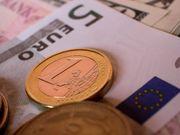For several years the position of Polish exporters on the markets of the former Commonwealth of Independent States has been clearly weakening
Published:
5 May 2003 y., Monday
In order to spur on trade, presentations of Polish exporters are gaining popularity. One such presentation is the Polish National Exhibition in St. Petersburg.
Geographic proximity, relatively small competition from local manufacturers who are not capable of satisfying the growing demand for modern products and, contrary to common belief, the increasingly wealthy and demanding customer, are the advantages of the "eastern market." Why then does trade with the countries of the Commonwealth of Independent States (CIS) constitute as little as 7.1 percent of the global value of Polish export?
The position of Polish companies is weakened by competition from the Western businesses that are perfectly aware of the perspectives which an active and strategically planned entry into Eastern markets can accomplish. Entrepreneurs from Germany, France and the United States, supported by the appropriate funds, first promote and then successfully sell their products in Russia and Ukraine or make direct investments there.
The decrease in the amount of Polish agriculture and food products exported to Eastern markets has stemmed from the fact that big international concerns such as Nestlé, Danone or Unilever directly entered this strategic area. However, the issue of Western competition is only a part of the answer to this question and the possibility of development for Polish exporters on the markets in the former Soviet Union.
One of the most serious difficulties Polish companies encounter is a considerable risk connected with signing commercial contacts with partners from the East who frequently appear to be insolvent and do not honor their contracts. According to Robert Stawski from the Promotion Chamber of the Polish Chamber of Commerce, businesspeople from Russia frequently do not understand the term "advance payment" and sometimes want to pay for the products only after they sell them. For obvious reasons, these terms are hard to accept for Polish manufacturers, which are mostly small and medium-sized companies. The state does not guarantee any protection for companies against situations in which partners from Russia, Belarus or Ukraine do not fulfill the terms of a commercial contract.
Šaltinis:
warsawvoice.pl
Copying, publishing, announcing any information from the News.lt portal without written permission of News.lt editorial office is prohibited.
The most popular articles
 The European Commission has adopted additional legislative proposals today to further strengthen financial supervision in Europe.
more »
The European Commission has adopted additional legislative proposals today to further strengthen financial supervision in Europe.
more »
 The EU has announced plans to regulate the market for derivatives – complex financial products that helped trigger the financial crisis.
more »
The EU has announced plans to regulate the market for derivatives – complex financial products that helped trigger the financial crisis.
more »
 New proposals to help EU farmers through the milk price crisis were backed by Parliament on Thursday.
more »
New proposals to help EU farmers through the milk price crisis were backed by Parliament on Thursday.
more »
 The European Commission and the European Investment Bank (EIB) Group are organising a conference in Brussels on 22 and 23 October to further promote two initiatives designed to increase the use of financial engineering instruments in the framework of cohesion policy.
more »
The European Commission and the European Investment Bank (EIB) Group are organising a conference in Brussels on 22 and 23 October to further promote two initiatives designed to increase the use of financial engineering instruments in the framework of cohesion policy.
more »
 The biggest thermal insulation production manufacturer in Finland “Finnfoam” has started the construction of a thermal insulation production plant in Kaunas FEZ.
more »
The biggest thermal insulation production manufacturer in Finland “Finnfoam” has started the construction of a thermal insulation production plant in Kaunas FEZ.
more »
 The European Investment Bank (EIB) is providing two loans in Hungary.
more »
The European Investment Bank (EIB) is providing two loans in Hungary.
more »
 Key Western Balkan projects to benefit from new funding EU, IFI financing to focus on infrastructure, SMEs and energy efficiency.
more »
Key Western Balkan projects to benefit from new funding EU, IFI financing to focus on infrastructure, SMEs and energy efficiency.
more »
 Lithuania, Belarus and China will cooperate in the development of the initiative of the East-West transport corridor.
more »
Lithuania, Belarus and China will cooperate in the development of the initiative of the East-West transport corridor.
more »
 On October this year AB Bank SNORAS will provide preferential UAB “Guarantee Fund of Agricultural Loans ” purpose loans to farmers and companies, which scope of activity is economic activity and processing of agricultural production.
more »
On October this year AB Bank SNORAS will provide preferential UAB “Guarantee Fund of Agricultural Loans ” purpose loans to farmers and companies, which scope of activity is economic activity and processing of agricultural production.
more »
 The European Commission has today approved an application from Austria for assistance under the European Globalisation Adjustment Fund (EGF).
more »
The European Commission has today approved an application from Austria for assistance under the European Globalisation Adjustment Fund (EGF).
more »